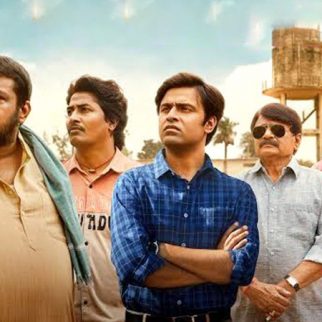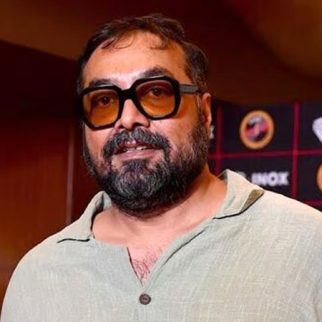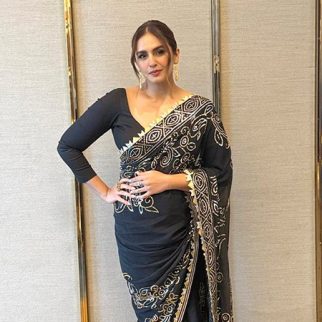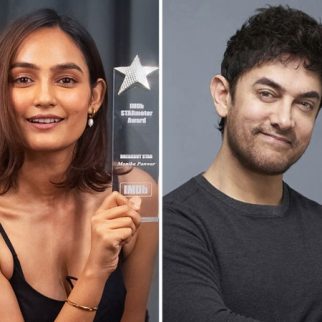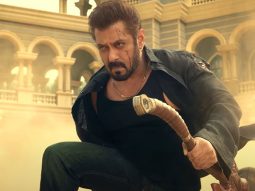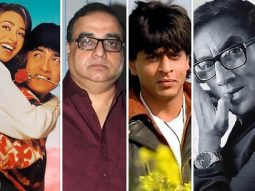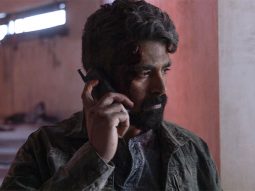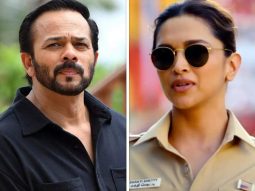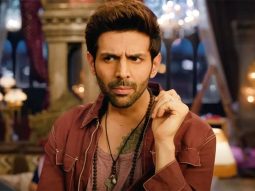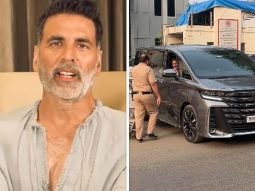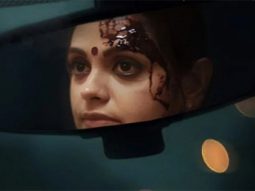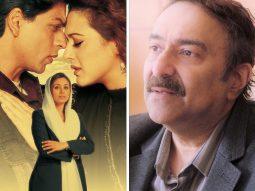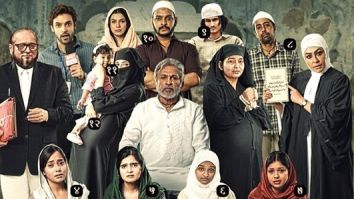
Screen chats up with Shantanu Moitra, Swanand Kirkire and director Rajkumar Hirani on how the thematic score of 3 Idiots was conceived
The vibe we got after hearing the 3 Idiots album is that unlike with Anu Malik's Munnabhai MBBS and Shantanu's Lage Raho Munnabhai this time the score has been created strictly for the subject without any thought for commercial prospects.
Rajkumar Hirani: I have known two kinds of songs - those that are attached to the scripts and others that may or may not be melodious but are detached from the film. I like a song to be of the former kind with popular appeal - a song cannot have a life in isolation. There are songs today that are designed for promos and have hooks and beats - and it is perceived that such songs work best, but we - my music team and I - disagree. I would rather make a good song that sticks to a story.
Shantanu Moitra: I think that everyone does create songs from the memorability point of view - that's part of your system as a film composer and does not really need any extra effort. Now whether it translates into what we aim at depends on several factors. To some extent, I agree with your vibe if it's the case of a song like Jaane nahin denge tujhe. Having said that, I also did not worry about popular endorsement in a song that was absolutely needed like Bande mein tha dum in Lage Raho Munnabhai.
Swanand Kirkire: The director's virtue is very important. We create only according to his sensitivity, and the reason why we could make such music was because Raju was so clear about what he wanted.
Still, how did the process of song creation go?
Shantanu: If the story does not move or there are no new shades coming in, our work will reflect that. Raju, however, works on the music even as the script is being developed. Jaise jaise script banti gayi, the songs kept coming. In the beginning, Abhijat Joshi and Raju when writing the script wanted a song to set a mood, so I composed Give me some sunshine where the English lines are written by me. It just came as I was strumming away on the guitar, just as I would make songs in college.
Swanand: We never suggested specific situations, but we brainstormed together. For example the lines Murgi kya jaane ande ka kya hoga/Life milegi ya tawe pe fry hoga came because I told Raju about a post on Facebook that showed an egg looking at an omlette and saying, "Is that you, brother?" There is a philosophy there, So it was about poetic interpretation in a different angle. And I must say that songs like All is well or even Jaane nahin denge are not just situational alone - they will be remembered on their own steam as well. So according to me it is a great situation that creates great poetic expression and great melody, unless of course there is a personal angle, as was the case with Bawra man in Hazaaron Khwaishein Aisi.
Shantanu: I recently attended a school reunion and as we went down memory lane on that day we realised that some of the most memorable lines were spoken in a college canteen by teenagers in rubber chappals who were no Karl Marx-es! Some of those casual statements were so profound ki bees saal ke baad bomb phat-ta hai! When I watch a film today, I get a shade apprehensive - do I watch a song that is stuck to it by some glue or has it been woven into the story? A song must be a part of a storytelling process. And the 'thought' is paramount.
Swanand: So the songs just kept happening, saath saath, and it's not possible to pinpoint where the tune came first and where the words did.
Behti hawa sa tha woh is a giveaway of sorts to the plot.
Shantanu(Laughs): After he heard the song, Vinod Chopra called up Aamir Khan and mischievously told him, "Aamir, this is the song that will be played during your funeral on television channels!" But jokes apart, I must say that this is the most simple, uncomplicated score that I have ever done and quite unconsciously at that.
Swanand: That's true for me too. My lyrics are straight from the heart and there is no ornamentation. It is important to crack the sound for any film, once that's done, it's simple. Like Parineeta needed a romantic lyricism.
Shantanu: Even for the background score, I have used a symphonic feel with strings and wind instruments. If you ask me "Why?", I'd say that the nature of this film seemd to point towards this. I had taken a similar approach in Khoya Khoya Chand but that was a subject in which I had to do it. But I was waiting for a contemporary subject where I could use this approach.
It's time to talk about your internal tuning, with reference to this film as well.
Swanand: All is well was a case in point. I kept writing without any concern for metres. And Shantanu was clear that good lines that were right for the film could not be rejected just because they were not fitting into the metre. He did not want to be selfish. So he tweaked the song, and used those words like a kafiya.
Shantanu: But that's what I am supposed to do - that's my craft as a composer. Otherwise why should I be in films? The question is no longer about whether Swanand writes to my metre or I tune his words. By now we have an unseen metre because of our comfort level - things just fall into place. We only had some problems during Hazaaron Khwaishein Aisi, during which time we were discovering each other! In film music, so many great lyrics probably have have been sacrificed because they did not fit a tune.
Swanand: And vice-versa. So we were working on individual planes that miraculously came together.
What do you guys think of music today and the way they are used nowadays?
Shantanu: I think that things have changed since the '90s and any change takes time to stabilise. For me, it is essential how a song is mounted and used.
Swanand: There is a demand today for a "hit" song. Except as a revenue model, we don't understand such a concept. How can you make a "hit" song? Music is a subjective thing, but what is the filmmaker's intention? A director must love music to excel in it, especially in our country.
Shantanu: Music should be taken seriously at all levels. That's how the great songs of yesteryear were created. One must treat music as an intrinsic part of a film. The first step is the story that gives birth to the need for a song at specific points. Then you put in a cauldron of the script, mahoul and so on. Film music needs to be a serious subject at film institutes, with a syllabus and training course as serious and cerebrally-conceived as those for cinematography and film editing. In film music, samajhna zaroori hai - it's not just about how much you know music itself.
Swanand: A great song, as I said, comes from a great brief. When it's an album there is usually a brief on the theme too, or the brief can come from within you. We need a film for a film song. A song cannot be made just because I have a pen in my hand and Shantanu has a guitar. You cannot also make a song with labels like Sufi and Hip-Hop.
As a director, what do you have to say to this? And like your idol Hrishikesh Mukherjee, do you look at songs as a necessary evil in Hindi films?
Rajkumar (Smiles): In a way, I do! But I have grown up like every Indian on songs in films. Foreigners are still flabbergasted by the way we use our songs, but for us it is a very acceptable art form. I have always had five songs in each of my films, but I have used them in such a way that it looked as if I had more. Situations are the key. The Aal izz well (All is well) theory says, "Don't get scared. Face up to the problems life gives you." That's the message in the film. I believe in songs that make a difference to a film, so much so that you cannot remove a single song without making the film look incomplete. Even Zooby dooby, on the face of it a romantic number with a retro feel, is taking the story forward.
Did you advise Shantanu and Swanand to read Five Point Someone, the book on which 3 Idiots is based?
Rajkumar: No, because as I started writing the script, I realised that the book was too anecdotal, whereas a film requires a plot and so I changed the story almost completely. But at the same time Shantanu and Swanand were with me all through. Shantanu's a seasoned intrepid trekker and he even scouted locations for us - which music director would do that? They were always here in this room, Shantanu and Swanand, even when no song was being discussed, working with Vinodji, Abhijat and me.
Yes, I did keep in mind the kind of lyrics I wanted - there was no room here for ghazals, for example. The language was important as the characters were students. How would a student feel in the first flush of love? Instead of going the filmi way, which would have been out of place for our characters, we managed to have our cake and eat it too by spoofing Hindi cinema and keeping our sensibilities intact by using the line Jaise filmon mein hota hai, ho rahaa hai hu-ba-hu in the Zooby dooby song.
Sonu Niigaam and Shreya Ghoshal are your main singers. Have you followed the classic one-singer-for- an-actor formula?
Rajkumar: Not really.
Shantanu: But since you mentioned them, let me tell you that one quirk we three have that drives Sonuji and Shreyaji up the wall - we keep changing things in a song all the time, even recalling singers after recordings. For Pal pal in Parineeta we ended up calling them four times into the studios, and Sonu joked and asked if something was wrong because we had only recalled them once here after the first recording. But with Zooby dooby, the figure finally did reach four!!
Screen India
BOLLYWOOD NEWS - LIVE UPDATES
Catch us for latest Bollywood News, New Bollywood Movies update, Box office collection, New Movies Release , Bollywood News Hindi, Entertainment News, Bollywood Live News Today & Upcoming Movies 2025 and stay updated with latest hindi movies only on Bollywood Hungama.

